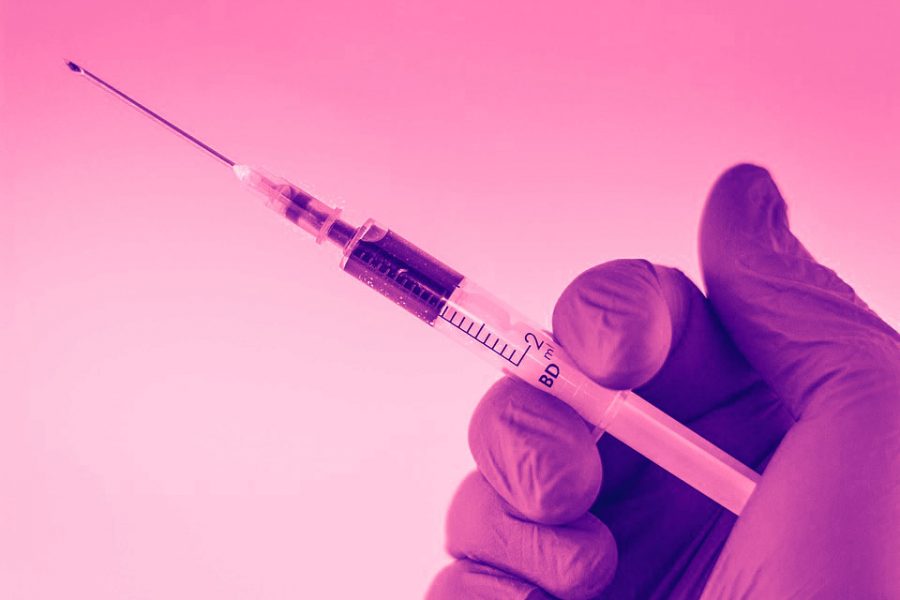Medical Misogyny
Women unfairly receive less effective medical care due to their gender.
PHOTO | (photo by pixabay, photo illustration by managing print editor Kennedy Wade)
Women’s health is taken less seriously than men’s due to gender bias and inequality.
Sexism in the medical field is both rampant and unchecked. It’s not a new thing. For 4,000 years, women were diagnosed with “hysteria” as a catch-all for any range of symptoms that, in men, would have been more properly looked into. Today, doctors dismiss women’s concerns in hospitals, or look at them through a veil of dehumanizing sexism – a case study in 2013 judged the attractiveness of women based on the kind of endometriosis she had. Called “Health-Care Gaslighting,” women are made to think that they’re overreacting and perfectly healthy when displaying concerning symptoms.
Until 2015, biomedical case studies in the United States were not required to study both men and women equally, and as a result, case studies focused primarily on men’s health. However, the sex of the patient has a large part in how they display symptoms and how they should be treated. For example, the warning signs of a heart attack often differ between sexes, and women die more often following heart attacks. Women are also more likely to get autoimmune diseases such as lupus and multiple sclerosis. The lesser amount of studies on women’s health has created a medical world that treats men’s health as the norm, creating issues with both diagnosing and treating women properly.
Disorders that affect only women have also suffered from this, with less information being known about them and less work being done to study them. Endometriosis, despite being one of the most common gynecological conditions and a factor that can increase the likelihood of other chronic diseases, has been studied very little. Research for ovarian cancer, the deadliest gynecologic cancer, is underfunded, and screening for it relies on outdated methods.
Most women will never be screened for #OvarianCancer. Screening is not recommended for asymptomatic women without a previously determined risk, largely because of the high prevalence of inaccurate results with current screening tools. Learn more: https://t.co/rFPYj0H9fe
— SWHR (@SWHR) February 27, 2020
When reporting symptoms, women are taken less seriously than men. “The Girl Who Cried Pain,” a study by Diane Hoffmann and Anita Tarzian, found that even when women reported more pain than men, it was treated with less pain medication. The same study found that women’s concerns were not taken seriously until they could prove that they were sick. Cardiovascular disease, despite being a life-threatening danger to both men and women, is screened for and treated less aggressively in women. Symptoms are also downplayed as the result of mental illness – depression is misdiagnosed in over 30 percent of women seeking treatment for their symptoms. This lack of trust for women seeking medical aid can at best waste time and money, and at worst have severe and life-threatening consequences.

Women are given less pain treatment than men, even when they report more severe pain levels.
With regards to mental illness in women, it’s still a struggle to get an accurate diagnosis. ADHD is primarily associated with boys, even though it affects both men and women equally – women with ADHD are more likely to be misdiagnosed with depression or anxiety. Additionally, the model for diagnosing autism is based on how it presents in men – leading doctors to miss symptoms and patients to struggle for a correct diagnosis. The model for diagnosing schizophrenia is the same, making it harder for doctors to quickly identify and treat it in female patients. Doctors equipped to deal with postpartum depression and proper screening are hard to come by, and leaves an estimated hundreds of thousands of new mothers to suffer without resources.

When the diagnostic guidelines are based off of men, women can struggle to get a proper diagnosis for their mental illness.
The prominent gender bias in medical treatment is as staggering as it is unreasonable and dangerous. The lack of faith in female patients reporting their own symptoms can have deadly consequences and leave women without answers, questioning if there is anything actually wrong with them. Doctors and other health care specialists should be trained to identify women’s symptoms and take them seriously, and more research needs to be done. Until then, women who feel they’re being dismissed should seek other opinions and alternate doctors to get the best treatment possible.



